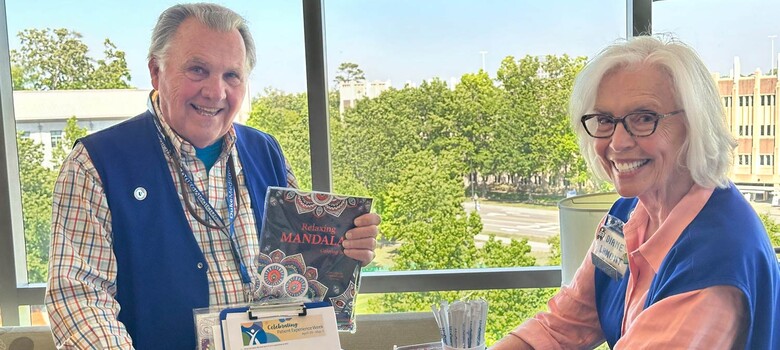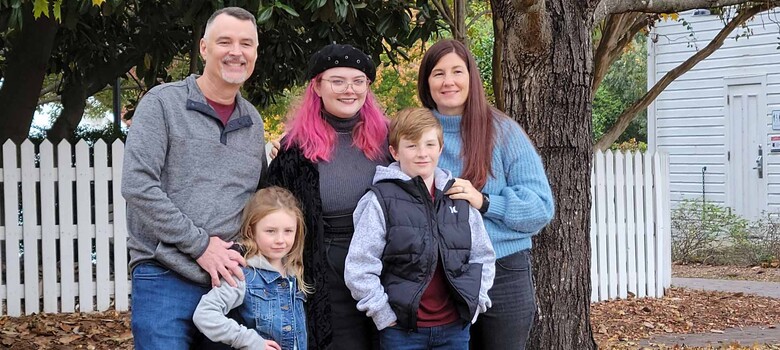Pilot Program Ensures Black Men with Prostate Cancer Get the Care They Need
Duke Cancer Institute Patient Navigator Reaches Out to Black Men with Elevated PSA

Duke patient navigator Melody McNair, RN, talks to Mr. Fogg and his sister, Sherry Williams.
Edward Fogg was 66 and homeless when doctors at a local clinic told him he had an elevated PSA score. Fogg didn’t understand that was a red flag for aggressive prostate cancer. He also didn’t want to talk about his health issues. Fortunately, a new pilot program at the Duke Cancer Institute is reaching out to Black men like Fogg to help them get the care they need.
Why Some Black Men May Not Seek Help
Melody McNair’s job is to identify men like Fogg. As a patient navigator and registered nurse with the Duke Cancer Institute, McNair has access to names of Black men who visited a Duke Primary Care clinic in Durham or nearby for their initial PSA screening. She reaches out if their PSA value is above 1.5 and they do not respond to repeated attempts to follow up.
Multiple factors can make it difficult for Black men to get the care they need. McNair said that some, though not all, have a fear or mistrust of healthcare systems which may stem from systemic inequalities or their personal experiences.
“They may lack support to pursue treatment, or they don’t completely understand the process,” McNair said. Having someone reach out and talk about their condition can turn “the corner for them to say, ‘Okay, let's take the next step,’” she said.
McNair said her father’s experience with advanced prostate cancer also helps her understand what holds some men back. Sometimes "they don’t want anyone to know they are sick. They’re supposed to be the ones to keep up the household. That was the case with my father,” she said.
Fogg experienced similar feelings. “I didn’t want to be a burden on anyone,” he said. “And I didn’t really care about myself.” He also didn’t understand what an elevated PSA meant.
PSA stands for prostate-specific antigen, and measuring it is the first step in diagnosing prostate cancer. A high score is a strong indicator of the disease, explained Hannah McManus, MD, Fogg's medical oncologist who specializes in prostate cancer at Duke.
Feeling Better After Treatment
McNair dug through Fogg’s records and found his sister’s phone number. She explained what the PSA score meant and how seeking treatment could make a difference. McNair also provided gas money and a parking pass to help Fogg get to his appointments at the Duke Cancer Center in Durham.
Now that Fogg is getting treatment, he is no longer in pain and his appetite is back. Dr. McManus said his PSA score dropped to .5 from 4150 in less than four months. “This shows us that Mr. Fogg’s prostate cancer is responding very well to treatment. I am hopeful he will live well for many years,” she said.
Making a Difference in Men’s Lives
McNair spent 20 years working with a Durham community health clinic, where she was involved in screening men for prostate cancer. She never knew if they went to a cancer clinic for treatment. She suspects that too many waited too long or never went at all. It’s why she finds the work she does today so gratifying.
Sometimes, she said, a phone call to explain what a test means and why treatment is important can make a big difference. “I’m the middle piece, to connect what you don't have to what you need.”
McNair's patient navigator role is funded by donations to the Duke Supportive Care and Survivorship Center. Additional funds are needed to expand the program to reach more populations at high risk for cancer. Give to the Duke Supportive Care and Survivorship Center.



